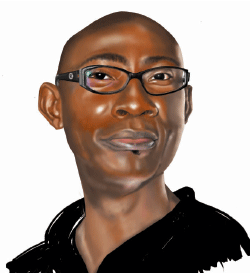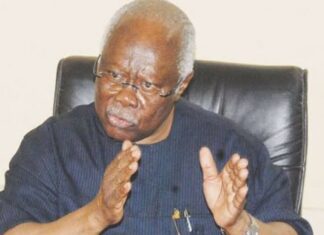During the week, I read a very pathetic story from the University Teaching Hospital (UCH), Ibadan where the workers raised the alarm that many patients on admission have no means to pay their bills.
UCH has resorted to begging corporate organisations, Spirit filled individuals and philanthropists to donate materials to help alleviate the demands on the hospital by extremely poor patients.
Grace Logun, Head of the Department of Hospital Services, said: “There are too many indigent patients who are dying because they cannot afford to buy drugs that can save their lives ….
“The rate at which people were dying as a result of poverty and inability of the hospital to cope with the demand of many indigent patients who come to the hospital with no money in their pocket is alarming.
“The UCH management is putting forward its best. But, honestly, there is no way we can treat the legion of indigent patients we have in the hospital with the little resources we have.
“We simply do not have the financial wherewithal to provide free healthcare service. We have had many occasions that the doctors and nurses contribute money among themselves to buy drugs in order to save lives.”
Logun poured out her mind when an Ibadan-based philanthropist, Adeniyi Oladeinde, donated drugs and medical equipment to UCH last weekend, specifically for the Tunwase Paediatric Ward, in response to a save our soul call.
Expressing gratitude to Oladeinde for the kind gesture, Logun explained that “the hospital was not in the habit of rejecting patients, hence the introduction of the Payment Deferment Scheme just to ensure that lives are saved first before settling the medical bill.”
Ronke Bello, the Chief Nursing Officer at the children’s ward, confirmed that “there were many children that had died needless deaths because their parents could not afford basic drugs, besides, parents’ attitude towards their children is poor.
“Can you believe that parents rush their sick children to this place with only N100 or N200 in their pocket and that may even be after they must have administered various concoctions on the helpless child?
“When the hospital asks them to go and buy certain drugs, they will say they have no money. That is why we approached people like Oladeinde to assist.”
The parlous state of affairs in the country calls for concern. The level of poverty is so alarming that the story coming out of UCH is not surprising. Nigerians in their millions live below the poverty line, yet the impression coming from the quarters of those piloting the affairs of our country at both national and state levels is that things have improved.
Is it not said that a healthy nation is a wealthy nation? But in our country, the reverse is the case while there is even no attempt to remedy the situation for a better tomorrow.
Most Nigerians cannot boast of one fairly good meal a day not to talk of money to attend to health problems. Even those who are in well paying jobs and businesses find it difficult to meet daily family needs.
It is important that the UCH saga is staring us in the face now that the silly season of politics is here once more, with three months left for the electorate to line up to choose their leaders, whom I prefer to call their killers.
Year in and out, the government at national and state levels claim to budget so much for health, but it is obvious that nobody actually cares about what happens to vulnerable Nigerians whose case UCH is complaining about.
In September, President Goodluck Jonathan got an endorsement from his Peoples Democratic Party (PDP). Since then, the floodgate of endorsements has been opened for politicians across party lines.
On Saturday, October 18, the group masterminding and pricking the conscience of Nigerians to see Jonathan as the best thing to happen to them, the Transformation Agenda of Nigeria (TAN), held its mother of all rallies in Abuja with one agenda: Jonathan’s endorsement.
No sooner did Jonathan get endorsed by the PDP than Senate President, David Mark, got one from his Benue State kinsmen who are ready to swear about the “good job” Mark is doing in office.
Many serving governors, federal and state lawmakers, and other government officials have since boarded the endorsement train crisscrossing the nooks and crannies of the political landscape to continue in office or occupy a fresh one. From the North to the West and to the East, the story is the same.
All the parties are into endorsement for political office seekers.
Going by his body language, even the All Progressives Congress (APC) presidential aspirant, Mohammadu Buhari, who declared his run on Wednesday, October 15, would have felt more comfortable if his party had imitated the PDP by endorsing him.
Woe betide you as a politician gunning for elective office next year if you have not yet secured some endorsement, meaning you are not yet in the race. It does not matter whether the aspirant has the capacity to win.
What is important is that endorsement is what is trending and is fast replacing the healthy political contest in form of a rigorous mode of selection of candidates who convince through articulate presentation on the soap box.
But who is bothered about healthy politicking when the electorate, both the informed and the uniformed, no longer ask probing questions about how political leaders emerge?
And why would politicians worry, anyway, when the electorate are ready to collect money from them as they did four years ago when they came soliciting their votes?
As the 2015 election bell tolls, voters must demand that attention be paid to their needs of food on the table, hospital to attend to health, electricity to light homes and offices, drinking water, good roads with affordable means of transportation to ply on, schools for children to attend, and industries to employ the jobless.
They must ignore the few naira notes politicians who do not care about them dangle before them having fraudulently secured endorsement for political office.
The electorate must secure their own endorsement from political leaders – the way politicians have secured endorsement – on what constitutes good governance and ensure that those who seek their votes do not shortchange them.
Doing otherwise means that, four years down the road, the UCH scenario will play itself out again. There may not be an Oladeinde to alleviate their plight then.













